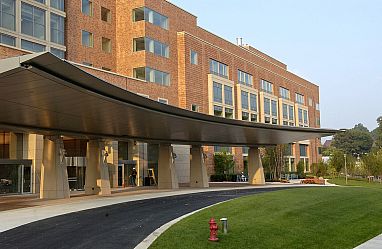September 3, 2019
Understanding Clinical Trial Eligibility

The standard of care for brain tumor patients tends to involve a narrow range of options; surgery, chemotherapy, and radiation. And there are only four drugs and one device approved by the FDA to treat brain tumors. Neurosurgeons and neuro-oncologists are skilled at their craft, and they will create a treatment plan for each patient that reflects an understanding of that patient’s needs and goals, as well as the best current techniques for targeting and dosing drugs.
Still, many patients want to try tools outside the standard toolbox. There is no cure for advanced malignant brain tumors like glioblastoma (GBM). Many brain tumor patients seek out clinical trials for the opportunity to be treated with drugs and approaches that extend or modify the current standard of care. With this disease, hope often takes the form of being willing to try something new.
Once a patient decides to pursue a clinical trial, many learn that it’s not always so simple. They tell their doctor they want to be on a clinical trial, gather the basic information about their disease, such as what the National Cancer Institute recommends with their cancer details checklist, and work with staff at the clinic where they’re being treated, or perhaps search for clinical trials themselves in places like ClinicalTrials.gov or the tools on the NCI’s Cancer.gov portal. Frequently, even when they think they should be eligible they find out that they’re not.
Research Questions
The reason patients may have difficulty joining a particular clinical trial is that each trial is designed to answer a particular research question intended to drive research closer to a cure. The challenge is that there is still so much that we don’t know. How do brain tumors start? How do they grow? How do they use the body to feed themselves? How do they shut off the immune system to protect themselves? How do they recover from damage? How do they differ in person to person? How can different drugs and treatment approaches alter their course?
Every clinical trial is designed to shed light on one particular question and provide more insight into how we can fight and beat malignant brain tumors. The entire brain tumor community has a role to play: doctors, patients, families, scientists, nurses, and everyone else who is part of the care process.
Subject and Principal Investigator
The subject of a clinical trial is the patient. The subject is either receiving the experimental treatment in addition to the standard of care, or a control, who is a patient who is receiving only the standard of care (FDA). The Food and Drug Administration (FDA) regulates clinical trials involving human patients. In cancer clinical trials, the treatment being tested is always in addition to standard care. Patients are never given placebo or denied treatment in the interest of research.
The principal investigator (PI) is someone who has been trained as both a clinical doctor and a research scientist. Their role is to provide the best care for a disease that anyone knows how to give today, while at the same time finding ways to push forward the state of the art. The PI has seniority over a given clinical trial, is responsible for supervising the care, and the research process. When a patient is treated at an NCI-designated cancer center, their primary neuro-oncologist will frequently be the PI on any clinical trials being administered through that center.
Trial Eligibility
An example of a research question might be, “will combining a new immunotherapy treatment with Temozolomide improve survival in patients diagnosed with a primary GBM with a particular mutation?”. By focusing on a specific question, PIs can get a better understanding of when and how the treatment being tested will be effective.
An outcome of this approach is that patients often find they are not eligible for a trial they hope to participate in. Clinical trials have very specific conditions for who is eligible to be in them, and a limited number of spots. Possible conditions include whether one has a primary tumor or a recurrent one, whether one has already had surgery, what treatments one has pursued so far, and what mutations one’s tumor exhibits.
Investigators call the process of finding patients for a trial accrual. Accrual consists of determining who will be eligible, finding eligible patients, enrolling them, receiving their ongoing informed consent, and completing the treatments being studied. A clinical trial needs to reach a certain accrual in order for its results to be significant, meaning they produce enough data to increase our overall level of understanding.
All around the country clinical trials are being conducted, testing several kinds of treatments on patients in all kinds of situations. And they all need to accrue patients. If your local research cancer center doesn’t have trial that you are eligible for, ask them to help you find one at another cancer center that you can travel to. You can also reach out to navigators at the NCI who can help you find trials.